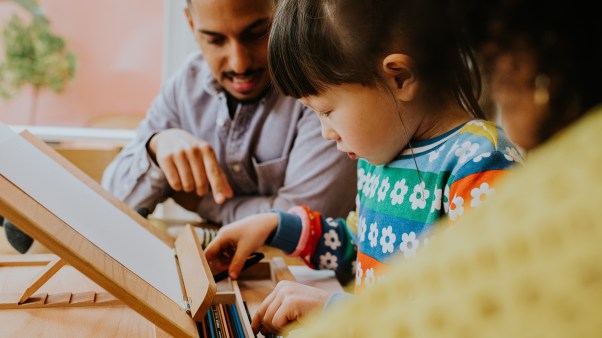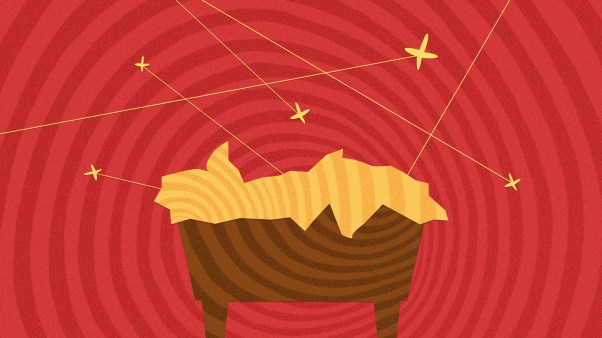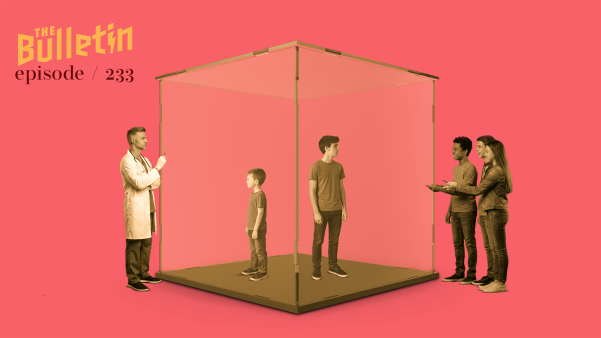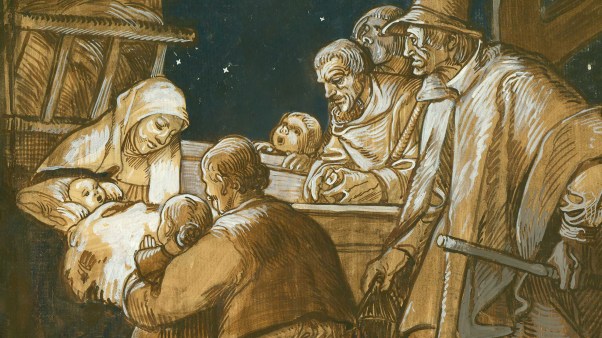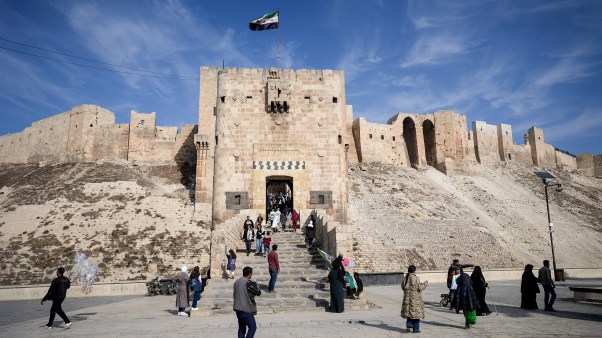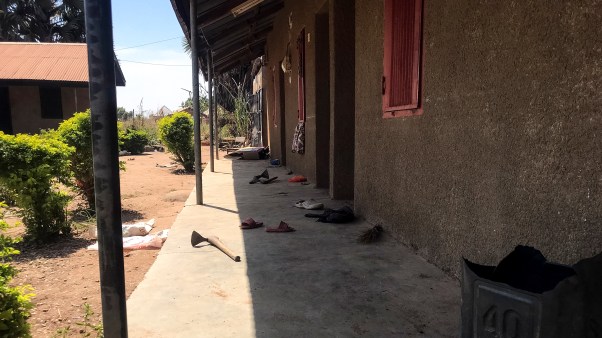The Tswassen people live in the south end of Greater Vancouver, close to the upscale community named after them. They’ve been on this land, though much more of it, for thousands of years. Back in the day, they had free run of forest and ocean. They hunted and fished, carved their wooden art in fragrant cedar, wove their baskets, held their potlatches. They sang and danced their grief and joy, their welcome and warning, their coming and going.
Now, they’re confined to a narrow wedge of land between the mudflats and an industrial park, and they rely on a casino for most of their income. Among them, there is a high incidence of suicide, alcoholism and drug abuse, teenage pregnancy and incest, domestic violence, and health issues of every kind.
The Tswassens have a prophecy 500 years old. One of their ancient holy men foretold that a people pale as birch would one day come from across the great water in large canoes. They would bring with them a Black Book. The Black Book was Truth, end to end, a gift of inestimable good. The people lived for many years awaiting the prophecy’s fulfillment.
And then one day it happened. The big canoes— bigger than the Tswassens ever imagined—arrived. They teemed with people pale as birch. And, yes, they brought with them a Black Book.
Then the killings started. The Tswassens became an obstacle to the pale men, and the pale men slaughtered them, and those they didn’t slaughter they enslaved.
Their story and mine
This is part of my history. In Canada, it’s part of all of our histories. The stories are legion: every encounter between white and native people in our country (in North America, actually) involved deception, betrayal, empty promises, often violence. Almost every native community in our nation had dreams and visions of the white man’s coming: all of them have stories of the nightmares and heartaches that followed.
A passage in Charles Frazier’s novel 13 Moons sums it up well. The story is told by Will Cooper, orphaned at a young age and raised in the wilds of West Virginia by a Cherokee chief named Bear. Will narrates:
“Baptists convened an offer to render the Bible—or a least a few of its most striking episodes—into the syllabary and supply copies of it to the people. Bear wanted me to read him some of the book before he decided to accept the offer or not… . He liked the story of Job, especially God’s pride in his own handiwork in creating all the animals and the varieties of landscape and weather … God’s bragging about how well the nostrils of horses turned out struck Bear as some kind of truth about creation… . Also, the story of the expulsion from Eden got his full attention, though his most persistent question was how big I thought the snake was. In the end, he said he judged the Bible to be a sound book. Nevertheless, he wondered why the white people were not better than they are, having had it for so long. He promised that as soon as the white people achieved Christianity, he would recommend it to his own folks.”
“As soon as the white people achieve Christianity.” This has been my experience also with the people, whom in Canada we call the First Nations: they’re intrigued by the Black Book, and drawn to the One it reveals, but they wonder why the white people are not better than they are, having had it for so long. Many First Nations people are so wary and hurt, wanting nothing more to do with the Black Book and its God, or the church that represents both.
There’s a prophecy in the Black Book I’ve freshly discovered. I eagerly await its fulfillment, and am doing whatever I can, whatever I must, to hasten it. The prophecy is in Zechariah 8. It begins with a vision of what a community looks like when God reigns within it. But here’s how the chapter ends, here is the vision’s crescendo:
This is what the Lord Almighty says: “In those days ten men from all languages and nations will take firm hold of one Jew by the hem of his robe and say, ‘Let us go with you, because we have heard that God is with you.'”
That’s evangelism. Good news is embodied. It is a way of life, a thing plain for all to see. The evangelized, not the evangelists, do all the talking: “Let us go with you.” The lost take the initiative. And the lost come from every tribe and tongue and nation.
This is the dream of every church—for God’s life among us to be so obvious, so fragrant, so magnetic, so contagious, that all peoples clamor for the privilege of joining. Rather than having to teach our members how to “grab hold of people,” people grab hold of us. Rather than us telling anyone “God is with us,” they tell one another that.
All these things happen in those days, which refers to a promise God makes at the beginning of Zechariah 8: “This is what the Lord says: ‘I will return to Zion and dwell in Jerusalem.’ ” Zechariah 8, then, is a description of what happens in, to, and through a church when God dwells in their midst.
Several things happen. Let me draw out two.
There’s a renaming. “This is what the Lord Almighty says: ‘Then Jerusalem will be called the City of Truth, and the mountain of the Lord Almighty will be called the Holy Mountain'” (Zech. 8:3). The very land is named anew.
City of Truth.
Holy Mountain.
Both the man-made and the God-made, civilization and creation, society and nature, are caught up and brought into the saving and healing work of God.
This has deep resonance where I live. The land is under dispute. When the British came here in the 1850s, they intended—indeed, their own laws required them—to pay for any land they took. This never happened in my region. It’s a long and ignoble story, but the upshot is that today our city rests on land never purchased—land, in a word, that was stolen. The feelings on all sides of this issue run deep.
Throughout our region, our province, our country, names of cities and towns, rivers and regions, mountains and coves, tell the story. One mountain bears the name of a Coast Salish chief, another the name of some English lord. The islands scattered down our coastline are named for Indian princesses, Spanish Conquistadors, English explorers, Dutch settlers. The town I live in, Duncan, bears the name of a Scottish farmer, whereas the town next to us, Chemainus, is named after the tribal people who first lived there, whereas the city down the road, Victoria, carries the moniker of a British queen.
All these names have histories, and many are histories of violence, betrayal, rivalry, deceit, greed.
We’re due for a renaming.
City of Truth. Holy Mountain. This isn’t a new imperialism. It’s not modern colonialism. As the last verse of Zechariah makes clear, this mountain, this city, is a place of irresistible attraction for people from every tribe and tongue and nation. No one is coerced. Everyone is drawn.
And it’s their idea to rename the place. “Jerusalem will be called … The mountain will be called.” The new names arise naturally. They are not imposed by decree: they are birthed out of the people’s experience of God. That experience is so fresh, so real, so sweet, it begs for new language, language that does not invoke the names of settlers and conquerors and chiefs and tribes, language that doesn’t participate in our painful human history of claims and counter-claims, of domination and subjugation, but rather language that evokes the qualities of God himself: Truth, Holiness. Language that awakens us every time we speak it to the God who makes all things new. Language that overlays our rent-asunder story with God’s work-all-things-together-for-good one. Names that redeem our blood-soaked treacheries with his blood-soaked sacrifice.
We are due for a renaming.
There’s a breaking of ethnic, cultural, and political divides through an inbreaking of the gospel. “This is what the Lord Almighty says: ‘Many peoples and the inhabitants of many cities will yet come, and the inhabitants of one city will go to another and say, “Let us go at once to entreat the Lord and seek the Lord Almighty. I myself am going.” And many peoples and powerful nations will come to Jerusalem to seek the Lord Almighty and to entreat him …. In those days ten men from all languages and nations will take firm hold of one Jew by the hem of his robe and say, “Let us go with you, because we have heard that God is with you.”‘” (Zech. 8:20-23).
Good News, the gospel, is for all nations. It’s for all people. It embraces and welcomes all languages—Urdu speakers, and Inuit, and Norwegians, and remote tribes tucked in the folds of Burmese mountain jungles. It’s for the homeless under the bridges of L.A., the untouchables in the streets of Calcutta, the drug-addicted in sweaty apartments not far from where you live. It’s for rich people who live atop hills, and poor people who live in ditches. It’s for the old man in his lonely room, the teenager girl struggling with her identity, the single mom wondering where the next meal’s coming from, the salesman wondering if he can do this job another day, the celebrity wondering why being lavishly adored is not the same as being deeply loved. It’s for the discouraged dentist, the confused mill-worker, the weary postman. It’s for everyone, everywhere: Let us go at once to entreat the Lord and seek the Lord Almighty. I myself am going.
This is evangelism Bible-style. This is evangelism that is cross-cultural, trans-political, multi-ethnic, intergenerational, class-defying, and wildly bountiful.
And natural. No one strategizes this. No one takes classes for this. It’s just that a people who live with God in their midst evoke, simply and powerfully, far and wide, curiosity about God. A community like that makes others envious in the best sense: they want what we have (Rom. 11:13-14). When God’s ways become our ways, we become catnip to the world. The fragrance of Jesus is all over us.
But stop.
God asks us to do something before he releases any of this—the renaming, our becoming a light to the nations.
He asks us to do justly.
“This is what the Lord Almighty says: … These are the things you are to do: Speak the truth to each other, and render true and sound judgment in your courts; do not plot evil against your neighbor, and do not love to swear falsely. I hate all this,’ declares the Lord” (Zech. 8:14-17).
A crucial shift in Zechariah 8 happens midway through. It’s announced by the phrase, “These are the things you are to do.” Up until this moment, Zechariah 8 has been a litany of things God promises to do. Right after this moment, it continues with things God promises to do. But inserted in the middle of the prophecy is something God requires us to do.
Act justly.
God hates injustice. He hates deceit. Unless we deal fairly and honestly with one another, unless we have a bone-deep commitment to justice and truth, all the good God intends to do for us and through us gets undone by us.
This has painful implications for me. I live, as I’ve already said, on stolen ground. I live in the shadow of Residential Schools. The first settlers in our region took the land from the Cowichan people and never paid for it, even though British law required from the beginning that they must. The next generation took the Cowichan children, and their language, and their culture, and their innocence. The history here is a study in bad faith: not speaking “the truth to each other,” not rendering “true and sound judgment in [our] courts,” “plotting evil against [our] neighbor,” loving “to swear falsely.”
We did all the things the Lord hates.
He’s asking us now to do otherwise.
I spoke recently at a local event called “The Gathering,” a conference for First Nations Christians. A few of us white folk were invited to come along. I was, for once, part of a white minority. It was refreshing to worship the Lord God alongside Cowichan and Cree, Sioux and Lakota, Pennelekut and Squamish, Ojibwa and Carrier, and many more, but to do so in a style that incorporated the dances and drums, the chants and war whoops, the regalia and headdresses, of indigenous people.
It was, in a word, beautiful.
I spoke on Zechariah 8. I confessed that I was part of a people who have done that which God hates. I said I was prayerfully struggling to know what to do next, how to undo what had been done. I said I was committed to finding out.
Then I used the story of Zacchaeus, Jericho’s runty chief tax-collector, a man despised by his community but loved by Jesus. When Jesus enters his house, announcing salvation, Zacchaeus repents: “Look here, Lord! Here and now I give half my possessions to the poor, and if I have cheated anyone out of anything, I will pay back four times the amount” (Luke 19:8).
Zacchaeus, I said, was converted first and most dramatically at the point where his actions had caused the most harm. A thief became, ex nihilo, a benefactor. A greedy taker became a lavish giver. If Zacchaeus hadn’t changed here, and for all to see, no one would believe salvation had come to his house, or would care if it came to theirs.
As soon as Zacchaeus had experienced salvation, he could recommend it to other folks.
God hates injustice and deceit. unless we have a bone-deep commitment to justice and truth, all the good god intends for us gets undone by us.
“It must be hard for you,” I said to the First Nations people, “to believe that salvation has come to my house when I refuse to repent of behavior that’s harmed you deeply. It must be hard to believe the Bible and its Good News when white people have had it for so long but don’t seem any better for it.”
Right after I spoke, a woman from the Cowichan tribe (my tribe, I like to call them now) told her story of being physically and sexually abused as a child in a nearby Residential School. She spoke without bitterness or accusation. In fact, she only told the story of her pain so that she could tell the story of her joy: how Christ was redeeming and reclaiming and healing her in mind, body, and spirit.
But the room was heavy when she finished. The white pastor got up, overcome with emotion, and said she was sorry.
“I’m not apologizing because I was involved in what happened to you,” she said. “I’m apologizing because I wasn’t involved. Because, even when I knew terrible things were happening in those schools, I still did nothing.”
Then the pastor said, “If you are white and you want to join me in apologizing, I simply ask that you stand.”
I stood. All the white people stood.
We were completely unprepared for what happened next. The First Nations people began to weep. Then their weeping turned to sobbing. And then their sobbing turned to wailing. It was piercing. I felt the shame of all the wrongs my forebears had committed. I felt the shame of all the ways I, though not involved personally, had been personally uninvolved. Apathetic. Not wanting to know and, once knowing, wishing they’d just “get over it.”
The wailing continued, got deeper, got louder.
When I could bear it no longer, an older First Nations woman—a chief of her tribe—came to the front, took the microphone, and said, “I do not want those of you who are standing to carry the weight of this. I forgive you. On behalf of my people, we forgive you.”
Peace like a river swept over me, and I wept.
Journey to justice
As I write this, a team at our church is preparing—has been for months—an event called The Journey of the Living. It will kick off Aboriginal Month for our entire community. The church will lead the way.
The Journey is the dream of Jenny Martin, a Cowichan Elder who met Jesus in our church three years ago and who longs for all her people to meet him. But she knows, personally, the hurdles involved for her people: the pain, the suspicion,the anger. We’re working to shape something that will begin the healing, for all involved. The Journey will incorporate Cowichan protocols—songs and ceremonies of witnessing and honoring.
But the heart of it will be six people, all First Nation, telling their stories. I’ve heard most of the stories already, and I’m bracing to hear them a second time. I’m thinking of Elmer, who will tell about the Residential School he was forced to attend as a boy. There, he was raped repeatedly, and beaten often, by nuns and priests who also told him Jesus loved him.
That story is depressingly typical.
Our dream is that Elmer, and Delmar, and Shawna, and Bingo, and the eight Cowichan Elders and many Cowichan witnesses who will attend, will meet the Jesus whom Jenny and Jason (Jenny’s biological son who also attends our church, but that’s a whole other story) have met and fallen in love with.
We hope to give them the Black Book, and for them to see that it’s full of Truth, end to end.
But hoping all this, we also know God requires us to do justly. We know that until we achieve Christianity, it’s hard to recommend it to other folks.
Mark Buchanan pastor of New Life Community Church in Duncan, British Columbia, and a contributing editor of Leadership.
1. Residential Schools were a 100-year collaboration between the Canadian government and three Christian denominations to provide Aboriginal children with education on the British model. Some delivered admirably. Others failed miserably: tragic stories of the powerful abusing the vulnerable are legion. Most First Nations people had no choice about whether or not their children would attend.
Copyright © 2010 by the author or Christianity Today/Leadership Journal.Click here for reprint information on Leadership Journal.


